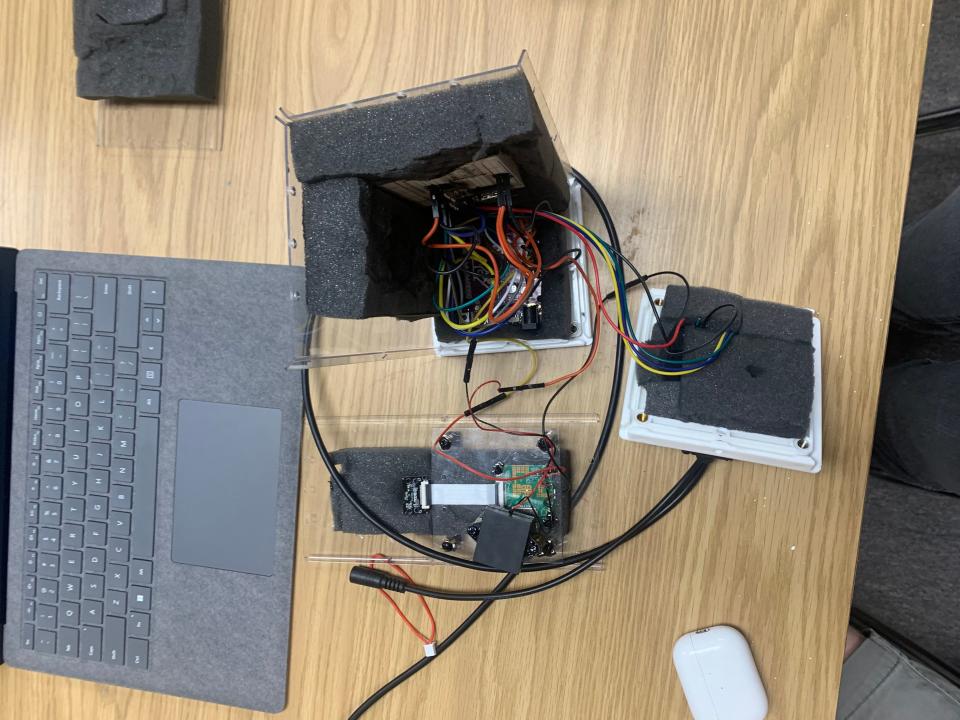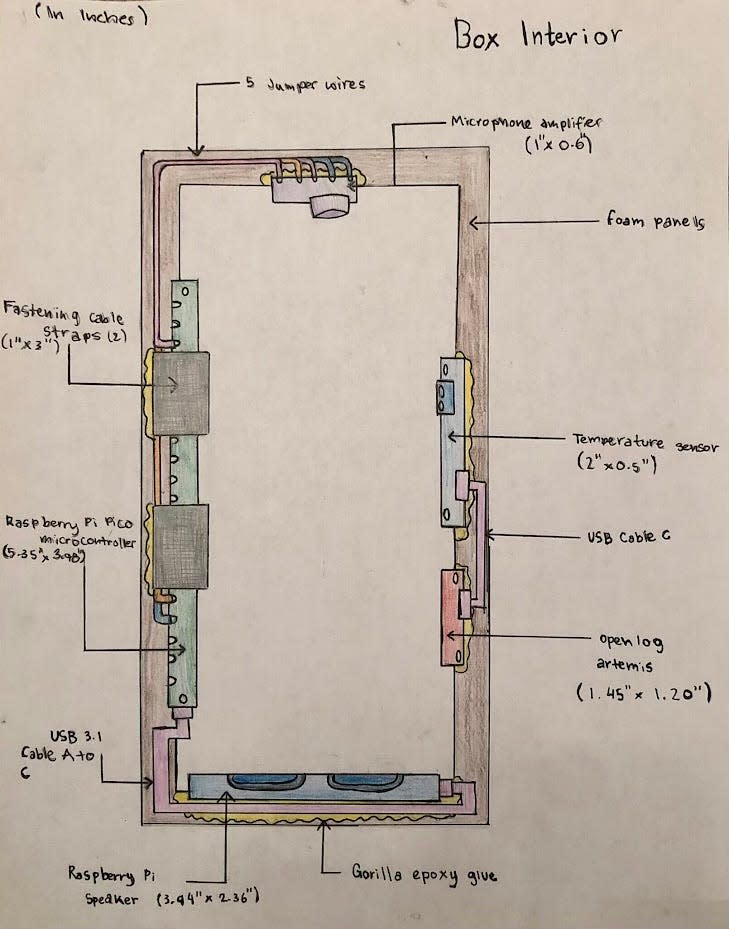Athens-area cross country runner participates in NASA project combining music and science
Athens Christian cross country runner Kaiya Smoot has several niche interests, including music and science.
The junior combined the two in a NASA TechRise project last year. The project was run by Future Engineers, a company started in 2014 to connect inspiring technology and media innovation to STEAM challenges for students ages kindergarten through 12th grade. Students submitted a proposal, which was then approved and funded through a $1,500 stipend by NASA to create the project. Only 60 teams were selected across the country, Smoot's being one of them.
The idea was to create a flight vehicle. Smoot's team went with a high-altitude balloon, designing a payload − or small box − to attach and send it 70,000 feet into the stratosphere. The payload carried with it an experiment — testing the pitch of an E-minor chord at different altitudes and temperatures.
"It actually started out when we were kind of brainstorming ideas," Smoot said. "I personally love music, and I had turned on this song called 'Space Oddity' by David Bowie. Then I got the idea, and I was like, 'Hey, we should incorporate music into our test.' When we looked it up, not a lot of testing has been done on sound in the different altitudes and temperatures, so (we went for it). We chose the chord E-minor because it was a chord in the chorus of the song."

Smoot plays guitar and piano and was previously played in cafes and restaurants in an unnamed band with friends when she lived in Vietnam before moving to Georgia roughly two years ago. Despite her interests, she plans to pursue diplomacy in the state department, following her background in travel.
Smoot worked with two other students in her STEM class, Jackson Arledge and Carter Whigham, as well as former Athens Christian STEM and computer teacher Leslie Pope. Pope said they sent their proposal last autumn before beginning weekly virtual meetings and consultations with NASA leadership as they went about making their prototype. NASA was there to help, answering any and every question the high schoolers had.
At the end of the project, Pope used the leftover money from the stipend to take the kids to the Kennedy Space Center in Merritt Island, Fla.
"It was really neat. Short, but intentional. We went with one mission in mind — to see the space center," Pope said. "To be able to go and see just exactly what it was we were collaborating with, and what they're capable of over there, it made it very real."
Pope is the one who found the project through Future Engineers. She helped Smoot and Company work out the kinks in their proposal and through questions they had to make sure they were on the right path regarding materials and turning their hypothesis into a physical test.

Two of the students, Smoot and Whigham, are dual-sport athletes. The project began during cross country season, and when it had ended, it was in the middle of soccer season. Smoot had support from her coaches throughout the process, especially Athens Christian cross country coach Tim Cummings.
"Every once in a while, she'd come and say, 'Coach, we have a deadline on this, can I be late or skip practice?' and you kind of have to work with them a little bit when they've got stuff like that going on. This was something very few kids in the country did," Cummings said. "She's tough physically and she's tough mentally."
The next step in any scientific experiment is to collect and analyze the data recorded. It's taken a while to process and unravel, but what they've seen from trials is that as temperature increases, the pitch of sound increases and vice versa. Pope said the aim is to collect enough data to publish a paper.
"I definitely think trial and error was a big component in this," Smoot said. "It was really nice to see that, when you have an idea, if you put a lot of work and effort into it, you can make it happen. But it does take a lot of resilience to get through the process."
This article originally appeared on Athens Banner-Herald: Athens Christian runner Kaiya Smoot participates in NASA project

